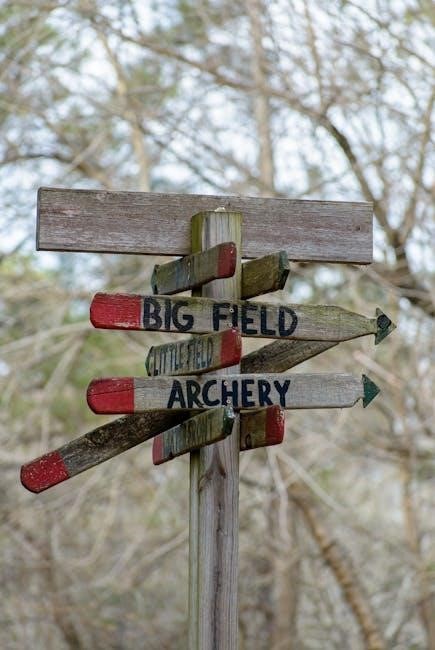Understanding Developmental Milestones
Developmental milestones are crucial indicators that offer insights into a child’s growth. These milestones encompass various aspects, including how a child plays, learns, speaks, acts, and moves as they mature.
What are Developmental Milestones?
Developmental milestones are a set of functional skills or age-specific tasks that most children can do within a certain age range. These milestones cover various domains of development, including cognitive, social, emotional, speech, language, and motor skills (both gross and fine motor); Achieving these milestones is a continuous process, with children building upon previously acquired skills.
Tracking these milestones helps parents, caregivers, and healthcare professionals understand a child’s progress and identify any potential developmental delays. Early identification allows for timely intervention and support, maximizing a child’s potential. These milestones provide a valuable framework for understanding child development.

Importance of Tracking Milestones
Tracking developmental milestones is essential for monitoring a child’s progress and detecting potential delays. Early identification enables timely intervention and support, optimizing a child’s developmental trajectory.
Early Identification of Potential Delays
Early identification of potential developmental delays is paramount for ensuring children receive timely intervention. Monitoring milestones helps parents and professionals recognize deviations from typical development. This early awareness allows for prompt assessment and access to appropriate support services, such as audiology or speech-language pathology. Addressing delays early can significantly improve a child’s long-term outcomes. Utilizing resources like milestone checklists and professional guidance ensures comprehensive tracking. Recognizing and acting upon potential delays promotes healthy development, enabling children to reach their full potential and thrive in various aspects of life.
Developmental Milestones by Age Group
Children progress at their own pace, yet specific milestones are generally achieved within certain age ranges. Tracking these milestones offers valuable insights into a child’s overall developmental trajectory.
Milestones from 2 Months to 5 Years
From two months to five years, children experience rapid development across various domains. These include motor skills, language acquisition, social-emotional development, and cognitive abilities. Specific milestones, such as smiling, rolling over, babbling, and walking, mark significant progress. Regular monitoring of these milestones helps ensure a child is developing typically. Resources like the CDC’s “Learn the Signs. Act Early.” program provide valuable checklists and information for parents. Early identification of potential delays allows for timely intervention and support, maximizing a child’s developmental potential. Remember that individual children develop at varying rates, but consistent tracking provides a helpful framework.
Resources for Parents and Professionals
Numerous resources aid parents and professionals in understanding and tracking developmental milestones. These include checklists, guides, and programs designed to support early identification and intervention for developmental delays in children.
CDC’s “Learn the Signs. Act Early.” Program
The CDC’s “Learn the Signs. Act Early;” program offers invaluable tools for monitoring a child’s developmental progress from 2 months to 5 years. It provides resources to track milestones, celebrate achievements, and address concerns about development promptly. The program emphasizes early identification of potential delays, encouraging parents and professionals to act early if concerns arise.
Furthermore, it offers resources like photos and videos of developmental milestones. The program aims to empower parents and caregivers with the knowledge needed to support children’s healthy development and seek professional help when necessary.
Addressing Concerns About Development
Monitoring developmental milestones helps in identifying potential delays. Early intervention is crucial. Resources like the CDC’s “Learn the Signs. Act Early.” program aid in recognizing when professional assistance is needed.
When to Seek Professional Assistance
If you observe that a child is consistently missing milestones or demonstrating unusual developmental patterns, seeking professional assistance is paramount. Pediatricians, child psychologists, and developmental specialists can provide comprehensive evaluations. Early detection of developmental delays or disorders allows for timely intervention, maximizing the child’s potential. Trust your instincts as a parent or caregiver. If you have concerns about a child’s development, don’t hesitate to consult with healthcare professionals. Remember that early intervention services can significantly impact a child’s progress, fostering optimal development and well-being. Seeking professional help is a proactive step toward supporting the child’s unique needs.

The Role of Play in Development
Play is fundamental to a child’s development, fostering learning, social skills, and emotional growth. Through play, children explore, experiment, and develop crucial cognitive and motor abilities, shaping their overall well-being.
How Children Learn Through Play
Children learn through play by actively engaging with their environment, experimenting with ideas, and developing problem-solving skills; Play encourages creativity and imagination, fostering cognitive growth and emotional development. Social interactions during play teach cooperation, communication, and conflict resolution, building essential social skills. Physical play enhances motor skills, coordination, and physical fitness. Through pretend play, children explore different roles, develop empathy, and understand social norms. Play provides a safe space for children to take risks, make mistakes, and learn from them, fostering resilience and adaptability. Overall, play is a powerful tool for holistic development, supporting children’s cognitive, social, emotional, and physical well-being.

Fine Motor Skill Development
Fine motor skill development involves the coordination of small muscles, particularly in the hands and fingers. These skills are essential for tasks like writing, drawing, and manipulating small objects, crucial for everyday activities.
Milestones from Birth to Primary School
From birth, infants exhibit grasping reflexes, gradually developing voluntary control over their hands. As they grow, they learn to reach for objects, transfer items between hands, and develop a pincer grasp for picking up small objects. Toddlers engage in scribbling and simple puzzles, refining their hand-eye coordination.
Preschoolers begin to use scissors, copy shapes, and dress themselves, showcasing improved dexterity. By primary school, children demonstrate refined writing skills, manipulate tools with precision, and engage in complex crafts, reflecting significant progress in their fine motor abilities. These milestones mark essential developmental stages.

Available Checklists and Guides
Numerous resources offer checklists and guides for tracking developmental milestones. These tools assist parents and professionals in monitoring a child’s progress and identifying potential developmental delays early on.
Printable Milestone Checklists (PDF)
Printable milestone checklists, often available in PDF format, provide a convenient way for parents and caregivers to track a child’s development from infancy through the early years. These checklists outline key skills and behaviors expected within specific age ranges, covering areas such as motor skills, language development, social-emotional growth, and cognitive abilities. Utilizing these checklists can help in early identification of potential developmental delays, allowing for timely intervention and support. Resources like the CDC’s “Learn the Signs. Act Early.” program offer free, printable checklists to monitor milestones from 2 months to 5 years, aiding in celebrating achievements and addressing concerns proactively.